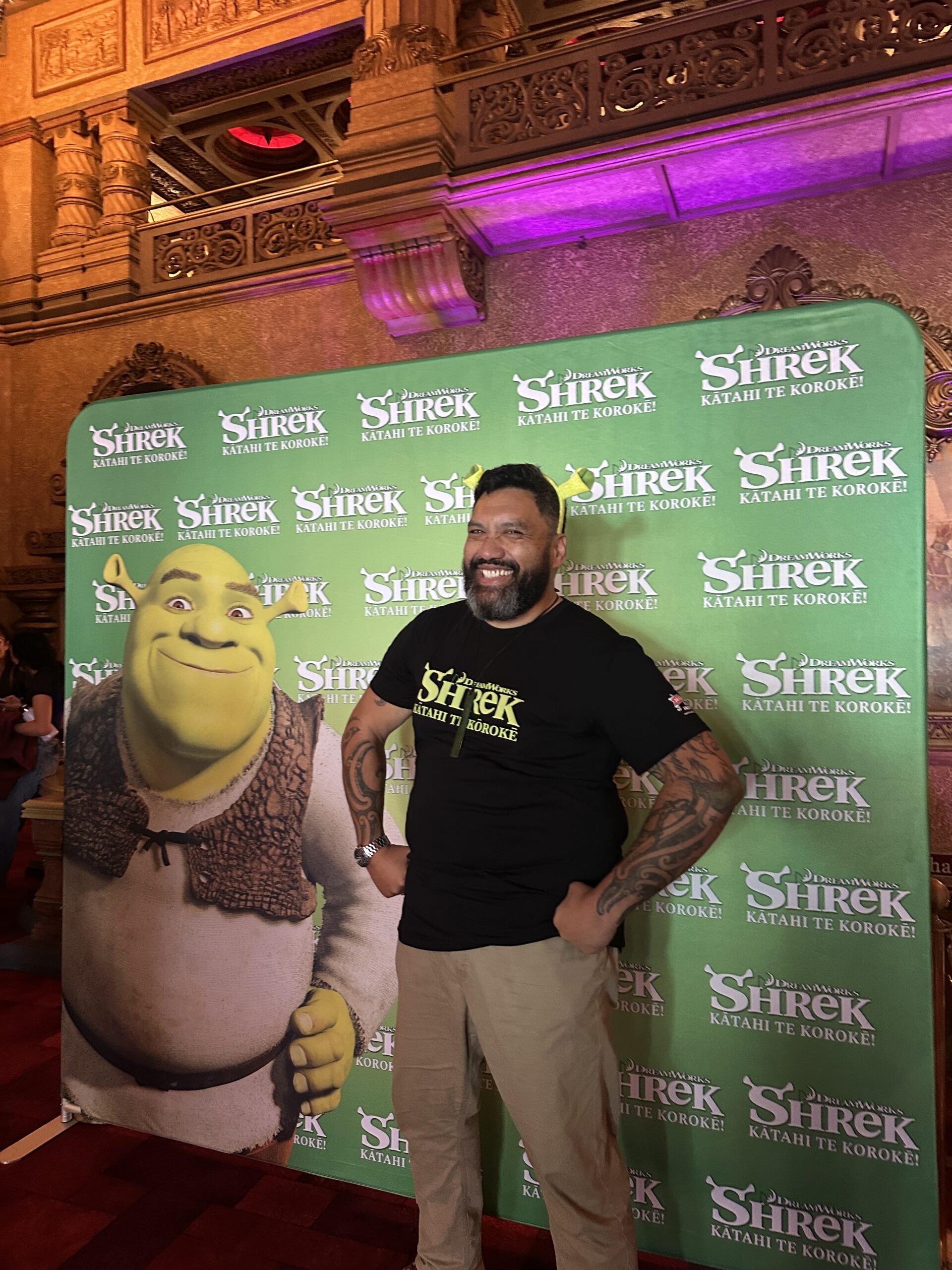Māoriland Film Festival 2025 Unveils Groundbreaking Indigenous Cinema Line-up
Ko te mauri, he mea huna ki te Moana
March 26 – 30, 2025 | Ōtaki, Aotearoa
Māoriland, the largest Indigenous film festival in the world, announces an incredible line-up for its 12th annual screen celebration with 130 films and digital works from 86 Indigenous nations.
The Māoriland Film Festival (MFF) takes place from 26 – 30 March 2025 in Ōtaki on the Kapiti Coast.
Festival director Madeleine Hakaraia de Young says this year’s festival theme, “Ko te mauri, he mea huna ki te Moana,” is a whakataukī that speaks of the life force of the ocean and the life force within us all.
“From the winds, electrical storms, and floods of this summer to the fires and extreme snowfalls of winter in the North, our planet is changing rapidly,” says Hakaraia de Young.
“When we were programming this year’s festival, we watched stories that evidence these profound changes all over the planet told through an Indigenous lens..
“We also saw stories of resilience, ingenuity and courage informed by generations of knowledge. Indigenous communities have solutions and we hope visitors to Māoriland will leave this year’s festival activated and inspired.”
“Ko te mauri, he mea huna ki te Moana,” is reflected across the 40 screening programs in this year’s festival – from short films to feature drama and documentaries.
Opening MFF2025 is a Special Screening of Kōkā, the debut feature film written and directed by Kath Akuhata Brown of Ngāti Porou.
Under the celestial guidance of Matariki, Kōkā tells the story of an unlikely bond between Māori elder Hamo (Hinetu Dell) and troubled teen Jo (Darneen Christian, The Dead Lands) as they embark on a transformative road trip. MFF audiences will be the first in Aotearoa to see this new film, a story of healing, community, and reconciliation.
The closing night film Te Puna Ora is a documentary by Virginie Tetoofa intertwining mythology and reality on the lush island of Mo’orea. Inspired by the legend of the goddess Hina, the film follows three Tahitian women who unite to protect their beach from privatisation.
A number of filmmakers are returning to the MFF2025 with new work. Singing Back the Buffalo, from award-winning Cree filmmaker Tasha Hubbard (nîpawistamâsowin: We Will Stand Up, MFF2020, Birth of a Family), is a deeply uplifting exploration of the reawakening of the buffalo and its profound significance to Indigenous peoples.
From James Ashcroft (Coming Home in the Dark, MFF2023), The Rule of Jenny Pen (Winner of Best Director at Fantastic Fest, Texas, 2024) is a dark, boundary-pushing thriller that will leave audiences laughing and wincing in equal measure with award-winning performances by George Henare, John Lithgow and Geoffrey Rush (Best Actor, Sitges Film Festival 2024).
Wilfred Buck, could be described as the Cree Rangi Matamua, reclaiming the star teachings of his ancestors. Ojibway filmmaker Lisa Jackson (Savage, MFF2014, Lichen, MFF2021) brings his story to the screen in a way that mirrors his worldview—eschewing conventional narrative structures in favour of a cinematic experience that embodies his unique way of thinking and being in the world.
Māoriland 2025 will also host the World Premiere of The Stolen Children of Aotearoa, directed by Julian Arahanga. This powerful documentary brings to light the harrowing experiences of survivors who endured abuse while in state care in New Zealand. Through candid interviews and personal narratives, the film delves into the systemic failures that led to the suffering of countless individuals, predominantly from Māori communities.
At MFF2020, Hawaiian filmmakers Alika Tengan and Jalena Keane-Lee shared their short films, Moloka’i Bound and Standing Above The Clouds . Both filmmakers and their teams are now excited to be travelling to Aotearoa for screenings of the Feature Film versions of e films.
Set against the backdrop of Hawai’i’s breathtaking landscapes, Moloka’i Bound delves into a young man’s journey as he faces the complexities of fatherhood, cultural identity, and the temptations of his past. Through intimate storytelling, Moloka’i Bound presents a compelling narrative of redemption and the enduring bonds of family.
Standing Above the Clouds chronicles the largest political movement in modern Hawaiian history.
This intimate film follows Native Hawaiian mother-daughter activists, including Pua Case and her daughters, who lead the decade-long fight to protect Mauna Kea, a sacred mountain, from constructing the Thirty Meter Telescope.
MFF2025 also includes the work of 37 rangatahi filmmakers, many of whom will be presenting at the festival for the first time.
“Māoriland has always ensured that the stories and voices of Rangatahi are uplifted and supported within the festival. Creating accessible pathways for Rangatahi filmmakers to share their work with audiences and filmmakers around the world,” said programmer and rangatahi Oriwa Hakaraia.
For younger and older audiences alike, the world premiere of Shrek: Kātahi Te Korokē on March 27 promises to entertain.
Starring accomplished actors and musicians Maaka Pohatu as Shrek and Tuakoi Ohia as Princess Fiona they are joined by, Te Puaheiri Snowden, co-host of the popular reo Māori podcast Taringa as Donkey and Māori language leader Jeremy Tātere McLeod as Lord Farquaad.
“It is a celebration of te reo Māori at Ngā Purapura, a venue operated by New Zealand’s first Māori tertiary institute Te Wānanga o Raukawa in a town where te reo Māori is heard everywhere” said Shrek Producer and Māoriland Head of Content Libby Hakaraia.
Māoriland is also proud to host the New Zealand premiere of the animated feature The Lost Tiger as this year’s free whānau feature film.
In The Lost Tiger, Chantelle Murray makes history as the first Indigenous Australian woman to write and direct an animated feature.
With an all-star voice cast including Thomas Weatherall, Rhys Darby, Celeste Barber, Jimi Bani, and Nakkiah Lui, this vibrant film is a joyful adventure for all ages. Seamlessly blending humour, heart, and adventure, The Lost Tiger is a groundbreaking children’s film that celebrates identity and resilience while exploring Australia’s past and present.
Now in its 12th year, the MFF has grown to be the largest Indigenous Film Festival in the world, known globally for its unique audience and filmmaker experience.
Alongside screenings, visitors to the festival can enjoy filmmaker talk series – NATIVE Minds, Indigenous art showcased on the street and in Toi Matarau Gallery, Food Trucks, Live Music and more.
- 21 Feature Films
- 104 Short Films
- 40 Thematic Programs
- 86 Indigenous Nations Represented
- 27 Countries
- 51 Indigenous Language Films
- 37 Rangatahi Filmmakers
- 62 Wāhine Filmmakers
- 130 Total Films + Digital Works



